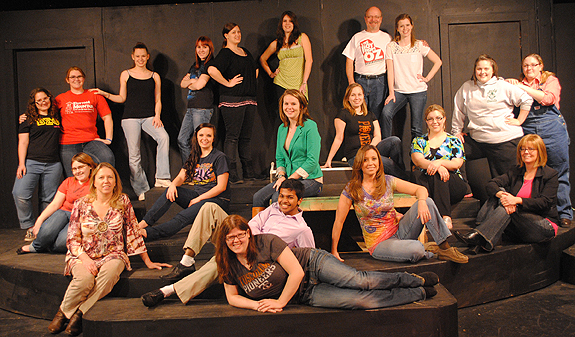
Singers from Tibet’s Drepung Loseling Monastery will perform “Sacred Music Sacred Dance for World Healing” at 7 p.m. Thursday, March 21, in the Annie Hogan Byrd auditorium on the Tusculum College campus.
The famed multiphonic singers of Tibet’s Drepung Loseling Monastery will perform Thursday, March 21, at Tusculum College.
The singers, whose sellout performances in Carnegie Hall and Lincoln Center have received national acclaim, will perform “Sacred Music Sacred Dance for World Healing.” The performance will be at 7 p.m. in the auditorium of the Annie Hogan Byrd Fine Arts Building on the Tusculum College campus. The event is part of the Tusculum College Arts Outreach Acts, Arts, Academia’s 2012-13 performance and lecture series.
The performance features multiphonic singing, wherein the monks simultaneously intone three notes of a chord. The Drepung Loseling monks are particularly renowned for this unique singing. They also utilize traditional instruments such as 10-foot long dung-chen horns, drums, bells, cymbals and gyaling trumpets. Rich brocade costumes and masked dances, such as the Dance of the Sacred Snow Lion, add to the exotic splendor.

Colorful costumes and masked dances add to the splendor of the monks' performance.
The monks’ performance is part of their international tour, The Mystical Arts of Tibet, co-produced by Richard Gere Productions and Drepung Loseling Institute, the North American Seat of Drepung Loseling Monastery, India. Endorsed by His Holiness the Dalai Lama, the tour has three basic purposes: to make a contribution to world peace and healing, to generate a greater awareness of the endangered Tibetan civilization and to raise support for the Tibetan refugee community in India.
The monks of Drepung Loseling have a very distinguished modern-day musical history. On past tours they have performed with Kitaro, Paul Simon, Philip Glass, Eddie Brickell, Natalie Merchant, Patti Smith, the Beastie Boys and the Grateful Dead’s Mickey Hart. In addition, two of their recordings achieved top-10 listings on the New Age charts: Tibetan Sacred Temple Music (Shining Star Productions) and Sacred Tibetan Chants (Music and Arts Program of America, Inc.).
 Their most recent recording, Compassion (Milennia Music), pairs them with the Abbey of Gethsemani Schola in an encounter of Gregorian chant with Tibetan multiphonic singing.Their music was featured on the Golden Globe-nominated soundtrack of the film Seven Years in Tibet, starring Brad Pitt (Columbia Pictures) and they performed with Philip Glass in Lincoln Center in the live presentation of his award-winning score to the Martin Scorsese fi lm Kundun (Disney).
Their most recent recording, Compassion (Milennia Music), pairs them with the Abbey of Gethsemani Schola in an encounter of Gregorian chant with Tibetan multiphonic singing.Their music was featured on the Golden Globe-nominated soundtrack of the film Seven Years in Tibet, starring Brad Pitt (Columbia Pictures) and they performed with Philip Glass in Lincoln Center in the live presentation of his award-winning score to the Martin Scorsese fi lm Kundun (Disney).
In response to the September 11 tragedies, they had the honor of creating special mandalas and leading prayer ceremonies and meditations in New York and Washington. Organized in conjunction with the Smithsonian Institution, these events were dedicated to the healing and protection of America.
The Loseling monks have twice been featured artists at the Smithsonian Folklife Festival, representing Tibetan culture, and in July 2003 enjoyed the rare honor of representing Tibet in the Cultural Olympiad of Greece, a pre-Olympic celebration of World Sacred Music and Dance. For this event the monks toured Greece and performed at venues that included the Acropolis and ancient Olympia, the historic site of the original Olympics.
Admission is $12 for adults, $10 for seniors (60 years of age and over) and $5 children under 12 years of age. For more information, please call 423-798-1620 or email jhollowell@tusculum.edu.



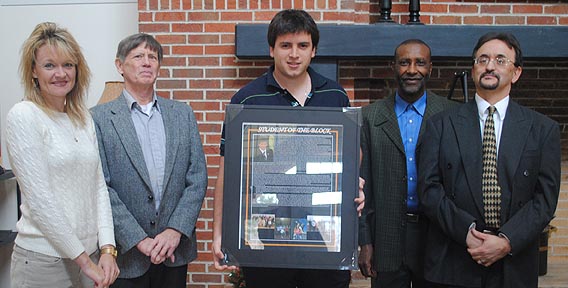
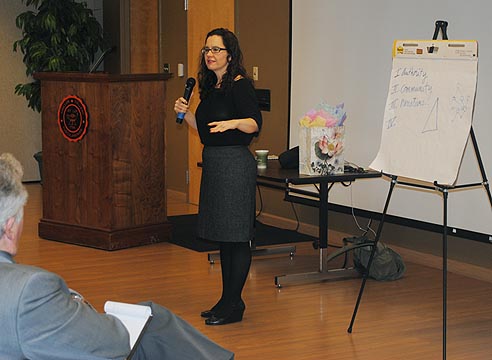


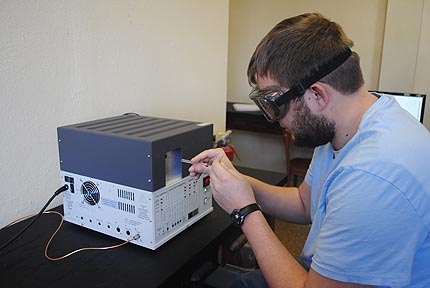
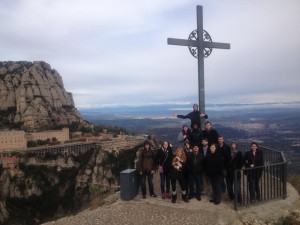
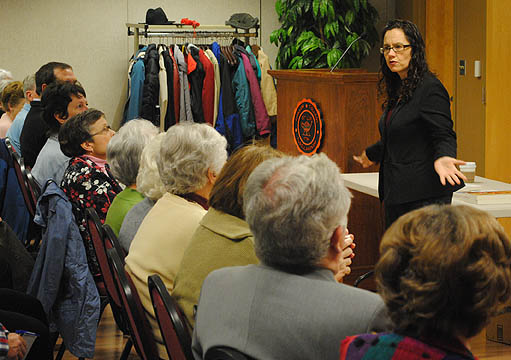
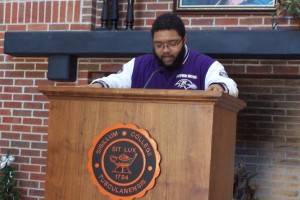


 By popular request, Theatre-at-Tusculum will bring the “A . . . My Name Will Always Be Alice,” the third show in the popular “Alice” series, to the stage Feb. 22-24 and March 1-3.
By popular request, Theatre-at-Tusculum will bring the “A . . . My Name Will Always Be Alice,” the third show in the popular “Alice” series, to the stage Feb. 22-24 and March 1-3.